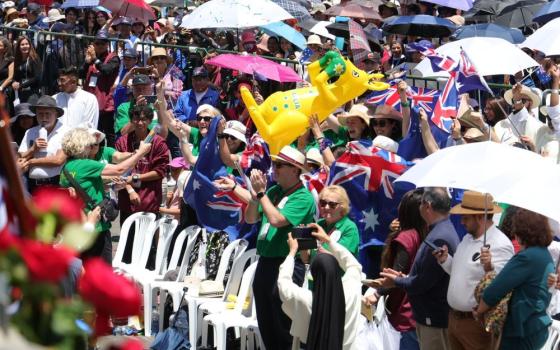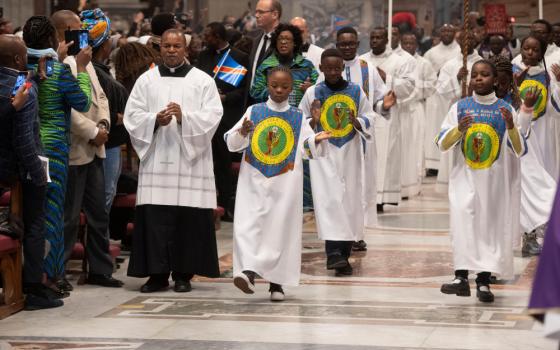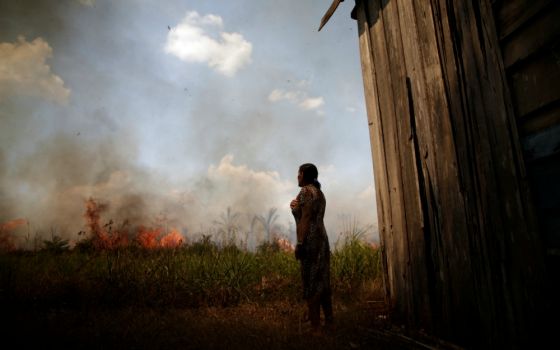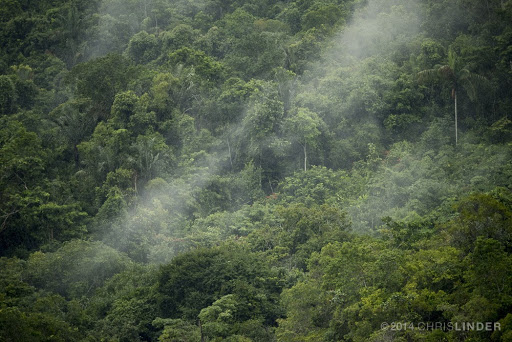
The Amazon rainforest stores the carbon equivalent of ten years' worth of human greenhouse gas emissions. (Chris Linder/chrislinder.com)
Pope Francis’ exhortation demonstrates an impressive understanding of the Amazon’s ecological value, and testifies movingly to its beauty and mystery, but misses an opportunity to “exhort” us to action on climate change.
To climate scientists like me, preservation of the Amazon is a critical priority, because the rainforest stores an enormous amount of carbon – equivalent to about 10 years of total human climate-warming emissions. Loss of the Amazon forest would therefore make it virtually impossible to meet climate policy goals like limiting global warming to 1.5 or 2 degrees Celsius.
In the post-synodal apostolic exhortation that was released Feb. 12, Pope Francis displays an astute grasp of the ecological threat facing the region and the world. He correctly and eloquently explains that the Amazon “serves as a great filter of carbon dioxide, which helps avoid the warming of the earth.”
The Pope also understands that the problem is even broader than that – geographically and across issues.
“The equilibrium of our planet also depends on the health of the Amazon region,” he writes. “Together with the biome of the Congo and Borneo, it contains a dazzling diversity of woodlands on which rain cycles, climate balance, and a great variety of living beings also depend.”
His awareness of these enormous stakes is a critically important opportunity – an opening to rally worldwide Catholics to take on one of the greatest challenges of our time—climate change.
In my role as the president of the Woods Hole Research Center, I am constantly seeking to involve new partners in promoting science-based solutions to climate change. The threat of climate change is dire, and we need a mobilization across all of society if we are to overcome it. Last year I stood next to Cardinal Sean Patrick O’Malley of Boston to launch the Faith Science Alliance – an initiative designed to focus attention on the ecological and moral emergency of climate change.
Francis could be one of the world’s most effective climate change messengers. His influence and reach are almost without comparison. His ability and willingness to wade into nuances of the science is impressive. Francis even explains the challenges of reforestation in an area with relatively poor soils.
Just as importantly, the exhortation points out that ecological damage in a region causes harm to its human inhabitants as well.
“If the care of people and the care of ecosystems are inseparable, this becomes especially important in places where ‘the forest is not a resource to be exploited; it is a being, or various beings, with which we have to relate,’” Francis writes.
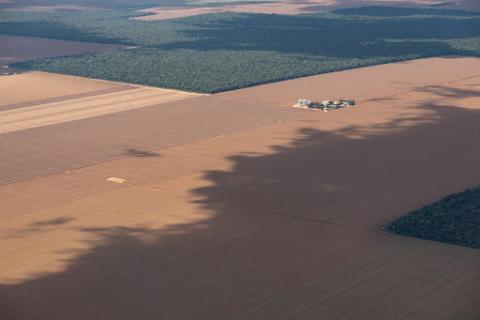
Deforestation such as this threatens Amazon forests. (Paulo Brando/Woods Hole Research Center)
As scientists we also focus on the relationship between the Amazon forest and its indigenous inhabitants. Our work has shown (perhaps not surprisingly) that indigenous peoples are better stewards of the forest than others, and keeping indigenous peoples in possession of their ancestral lands goes hand-in-hand with preserving the forest and slowing climate change.
But what comes next? Francis has highlighted a crucial issue – but the importance of the Amazon rainforest was well-known beforehand. Notably, the Pope’s exhortation does not go as far as the Synod – which called the destruction of these natural resources a “sin.” To so clearly identify a threat to the stability of our climate, but to avoid calling for urgent and immediate action, is a missed opportunity and a half step.
There is a clear path forward, to effectively conserve the Amazon. We know that protected lands and indigenous reserves contain the healthiest forests and the most carbon. Brazilian laws are in place to protect much of the forest, although they are lightly enforced under the current presidential administration. Keeping these protections in place would be in line with all of the values and priorities laid out in the Pope’s exhortation.
Francis has shown tremendous leadership in putting a spotlight on Amazonian deforestation, and the global consequences. Hopefully, he will continue to push for action that will conserve these invaluable forests.
[Philip B. Duffy, Ph.D., a physicist working for nearly 30 years on climate change, is president and executive director of the Woods Hole Research Center.]
Advertisement





